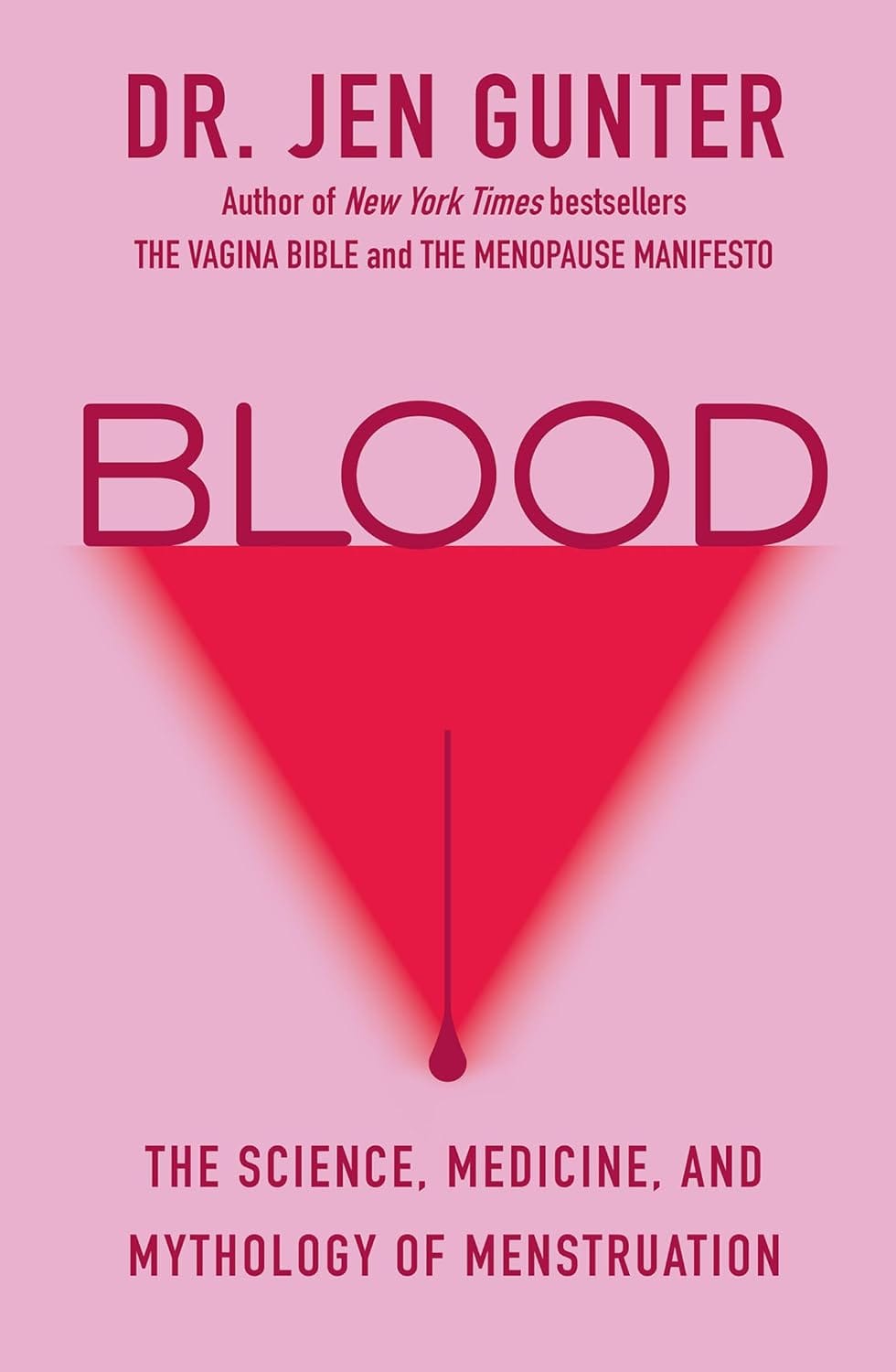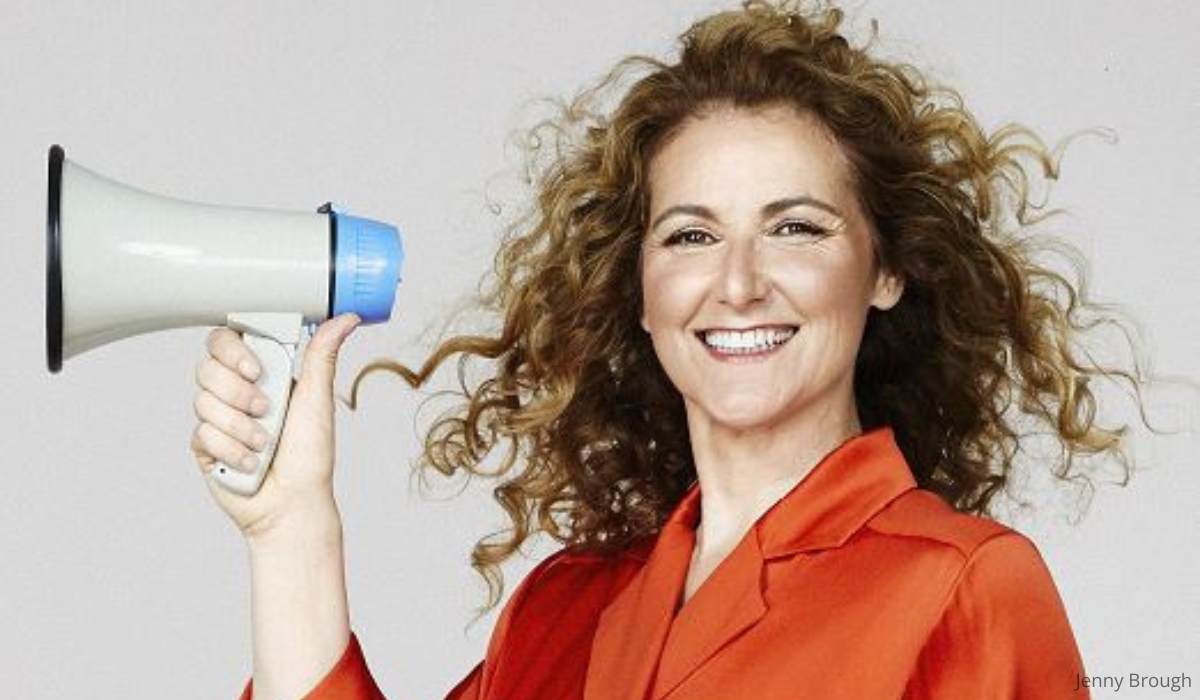The Biggest Menopause Conference Just Ended. These Are the Takeaways You Need to Know
Last week, hundreds of clinicians gathered in Chicago for the annual Menopause Society meeting—a must-attend event for anyone involved in women’s midlife health. At the conference, scientists broke down the latest research on a broad range of topics, from brain and bone health to managing sleep, substance use, and workplace challenges during the menopause transition.
To learn more about some of the biggest takeaways from the conference, The Sunday Paper turned to Jen Gunter, MD, an ob-gyn and pain medicine physician and a fierce advocate for women’s health.
Here, Dr. Gunter breaks down why misinformation is so rampant in the menopause space, what all of us need to know to spot it, some of the most notable insights from the meeting, and more.
A CONVERSATION WITH JEN GUNTER, MD
You are on a mission to counter misinformation about the menopause transition. What do you want more women to know and do about this?
There are so many people talking about menopause right now, which is great. Talking about menopause publicly is new. Thirty years ago, you became almost invisible around age 41. Now in this great reversal, we're singing about menopause—and that's fantastic. The problem is that there are a lot of gaps in medicine. And menopause specifically has a lot of gaps. Some of those are due to damage from the legacy of the Women's Health Initiative, but many are also due to how women's health has been studied in general. And gaps are easy to prey on.
This is why I think we're seeing this emergence of misinformation. An example of this is the explosion of menopause supplements and special menopause diets. These things are taking advantage of the gaps.
For the woman reading this who is in the menopause transition and doesn’t know who to trust, what’s your advice?
Well, it's very difficult. We know it's hard to research health information online, because most people just go to a Google search and what comes up first is not necessarily the best. There are many ways that the search algorithm can trip you up. So, I think it's important for people to learn about sources. Ask yourself, What is this person's bias? Are they selling a product? Is the source of the information you’re reading someone who should be offering advice about hormones if they're not someone who can prescribe those hormones? And can you verify what you what you're being told with the guidelines?
The menopause society has some really clear, easy-to-understand guidelines. The documents are quite long, but each section has a nice summary that’s easy to read. So, you might ask yourself: Does what I’m being told match up with the guidelines? Reference what you're hearing against that. And if what you're hearing is different, that should be a sign to investigate further.
You just got back from the 2024 Menopause Society Conference, where the leading experts gather to talk about the latest research. What were some of your biggest takeaways?
To me, one of the most scientifically interesting things was how effective Cognitive Behavioral Therapy (CBT) is for insomnia, even in the presence of hot flashes. I had assumed that CBT works great for insomnia, but if you're still waking up with hot flashes, it's not going to be beneficial. But CBT outperformed every drug, and the data that was presented was really fascinating.
It's proof of the mind body connection. This doesn't mean your symptoms are all in your head! It's important for people understand this. We’re not trying to use CBT instead of giving you hormones, like some doctors are saying in really disparaging comments. We're saying, This is a science-backed treatment. Isn't it good that we have more science backed options, not fewer?
Another big takeaway was on hair loss, which is a condition that can be triggered around the time of hormonal fluctuation. There were two key points I came away with:
1. The most common type of hair loss during menopause is female pattern hair loss, which typically presents as a thinning part line and/or a thinning ponytail. This isn’t treated with estrogen. In fact, no hair loss seems to be treated with hormone therapy. This is important; I see patients all the time who tell me they want to start hormone therapy for hair loss, but we don’t have data to support that. It’s also important to rule out other things that may be causing your hair loss, such as iron deficiency (which is very common in women), thyroid disorders, and a few other conditions. Once you’ve ruled out the possibility of other causes for hair loss, the first-line therapy is either oral or topical minoxidil and possibly another drug called spironolactone.
2. If your hair loss issue is that your hairline is receding, you need to see a dermatologist who can evaluate you for frontal fibrosing alopecia, a type of hair loss that involves scaring, as the hair can’t grow back if left untreated. It is often unmasked during the menopause transition or during menopause but can affect people of all ages and genders. For some unknown reason, the incidence is increasing. If you look back at old photos and see that your hairline is receding, that’s a sign to see a dermatologist.
In your Substack, The Vajenda, you’re doing a lot of de-bunking around the belief that menopausal hormone therapy prevents dementia and Alzheimer’s. What do you want women to know?
We don't have good data to support hormone therapy for cognition or for the prevention of dementia. We have four randomized, double-blinded, placebo-controlled trials looking at different estrogen formulations for cognition in early menopause, and none of them show benefit. We also don’t have data to tell us that hormone therapy can prevent Alzheimer’s Disease, and the observational studies here are conflicting. At the lecture, the speaker, Dr. Maki, was quite clear that the guidelines from the 2022 Menopause Society hold, meaning that unless other evidence emerges, hormones should not be prescribed for the prevention of dementia. This is an active area of research, and while we wait for more data, it’s important for women to know that there are many things they can do for brain health, for example, regular exercise and getting their hearing tested.
I think it's important to recognize that some women experience cognitive changes in the menopause transition, specifically in verbal learning and memory. The good news is that for most women, these changes revert to baseline over time. So, this is temporary. Often, these symptoms are lumped together and talked about as brain fog, but brain fog is a vague term and can mean different things to different people, so we need more precision here. For example, brain fog can be a stand-alone symptom, or it could be the result of poor sleep or a symptom of depression or iron deficiency. If a woman is taking hormones for hot flashes and now is sleeping better, then her brain fog may improve because of better sleep, but it’s also possible it may not.
So, what does the data support when it comes to what hormone therapy is proven to treat?
It's hard to distill everything down to answer that question, because we have really good “green light” indications, as I call them—for example, hormone therapy treats hot flashes and night sweats, and prevents osteoporosis in people at high risk. We don’t want people with these symptoms to suffer, and they should know that for most women, standard pharmaceutical hormone therapy is low-risk.
Then there are the “yellow light” indications. For example, there's some data to show that hormone therapy can help with depression in the menopause transition. The studies aren't definitive enough that drug companies have taken the evidence to the FDA for approval, but the data is enough that it's reasonable to try.
The bottom line is that you need to have a discussion with a provider who can go through your concerns, and then say, “Based on the evidence, is there a reasonable chance that your concerns could be helped with hormones or not?” That's different than saying everybody should be on hormones for all of their menopause symptoms.
Where can we find menopause practitioners who take the kind of evidence-based approach you do to care for us during this important transition?
Looking for someone who is certified by the Menopause Society is a good start. If you live close to an academic medical center, I would look to see if they have a menopause clinic.
Also, stay alert to information coming from practitioners you’re considering seeing that isn’t supported in the guidelines. For example, I would be wary of people selling supplements, recommending hormone tests for women over age 45, pushing compounded hormones and hormone pellets, and those who tell you that you need to have your hormones monitored if you're taking pharmaceutical hormones. Look for these red flags.

Dr. Jen Gunter is an internationally bestselling author and doctor and author of the New York Times bestsellers, The Vagina Bible and The Menopause Manifesto. She writes the popular Substack newsletter, The Vajenda, tackling medical misinformation and misogyny on social media.
Please note that we may receive affiliate commissions from the sales of linked products.



